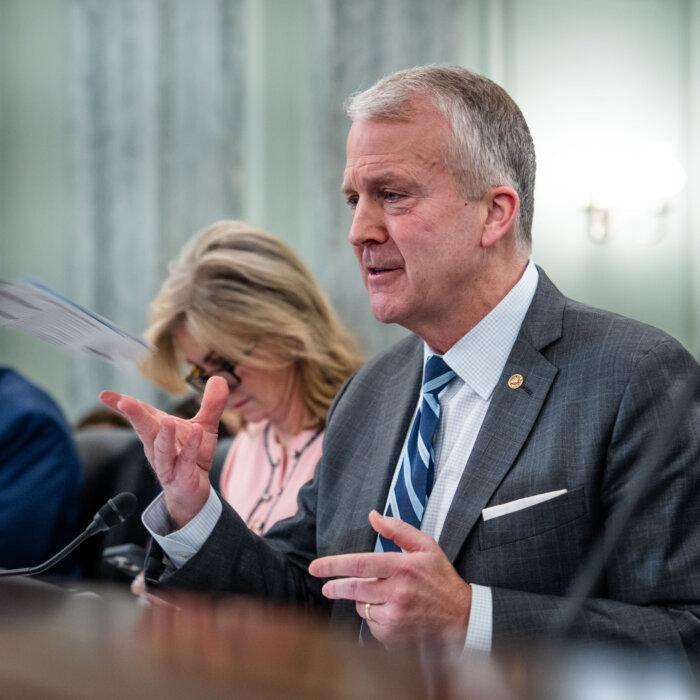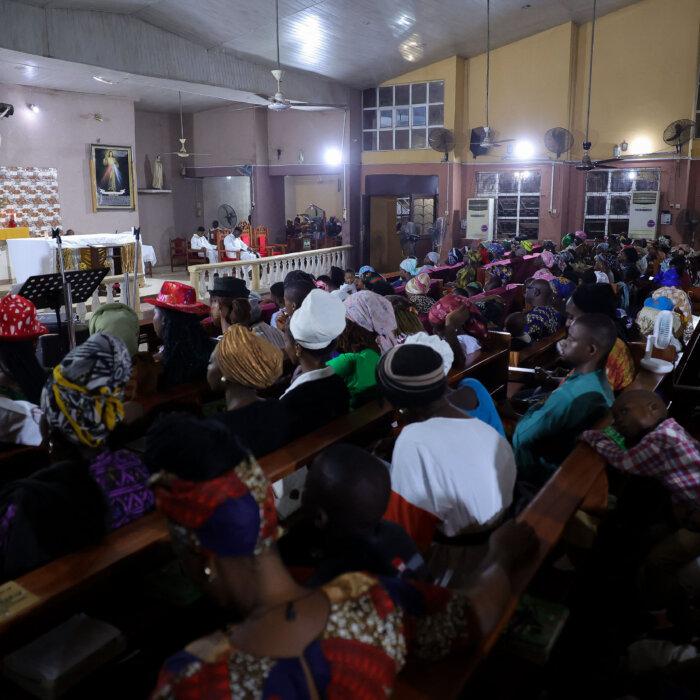WASHINGTON—For the past month, Grace Jin Drexel has lived every day focused on a single goal: to get her father out of jail in communist China, where he has been detained for his faith.
On Oct. 9, her father, Ezra Jin (Jin Mingri), founder and pastor of the prominent underground Zion Church in China, sent out an urgent prayer letter to his network, alerting them to the abduction of fellow pastor Franklin Wang by Chinese authorities.
Jin Drexel, in the United States, received the text around midnight. By the time she read it the next morning, her father and more than 20 other Zion Church leaders across the country had also been detained.
Jin and at least 17 other church leaders remain detained for their faith, and he and at least one other church elder are not receiving appropriate medical care for their health conditions, according to what Jin Drexel learned from their lawyers.
Why Target a Pastor?
The Zion Church is emblematic of the growing Protestant movement in China. Jin, a Chinese citizen, felt called to minister to the Chinese people in 2007, and moved back to China from the United States to start a church.
The Chinese Communist Party (CCP) criminalizes religious activity outside of state control, so the Jin family knew the undertaking would be a risk.
After authorities officially banned the church in 2018, Jin was placed under house arrest and subjected to an exit ban, and Jin Drexel has not seen him since. A target had been painted on his back, and he briefly stepped away from the church in hopes it would bring the church out of the regime’s crosshairs, according to his daughter, but he returned when it looked like that would not be the case.
Jin Drexel said the family understood then that detention was a possibility, but her father was resolute that this was his mission.
“He wanted to serve the Chinese people,” Jin Drexel said. Christ “lived a sinless life and he has died for us. The idea that a god would die for someone, and especially a sinner, that is just unheard of … and that is so unique and so powerful, because he loved us even before we were lovable.”
“To fully understand and to grasp that as a Christian … and then to say, ‘We want to follow you,’ that, in itself, already means that my whole life belongs to him already, who had given his life for me,” Jin Drexel said. “They’re basically saying that ‘We don’t even fear death anymore. We don’t fear persecution.’”
With that sort of resolve, Jin continued to lead the church. When the pandemic hit, services moved online, and attendance exploded. At the Nov. 20 congressional hearing, one human rights advocate said he saw daily attendance numbers nearing 10,000 in recent days.
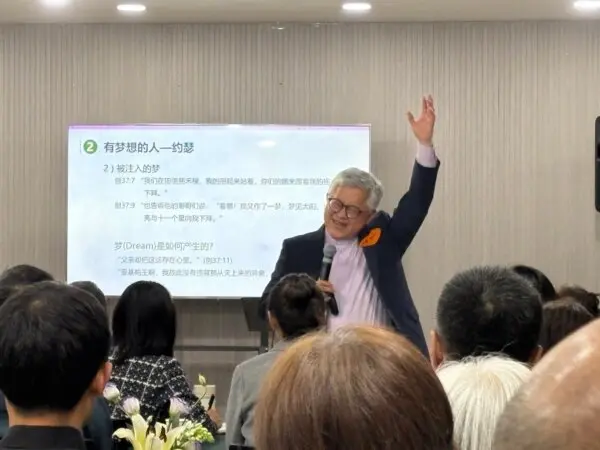
Pastor Ezra Jin, founder of the Zion Church in China. Courtesy of Grace Jin Drexel
Coordinated Suppression
Jin Drexel said she was unable to reach her father after she received the text from him. She had an unsettling feeling, but attributed the silence to the possibility that her father was busy trying to help his fellow pastor.
“We were no longer able to contact my father or anyone around him,” Jin Drexel said. “Toward the end of the day, we realized that, in fact, many of the other pastors of Zion from many different cities all across China were all being detained.”
The mass detentions happened from Beijing in the north to the southernmost part of China in Hainan. Nearly 30 church leaders were rounded up, their cellphones taken away so none of them could record or contact others.
“They were systematic and they were preemptive,” Jin Drexel said.
She learned from her grandmother that some 30 police had come to detain Jin, “that they handcuffed him in front of her … [and] dragged him out.”
That dozens had shown up to detain a peaceful, elderly man showed the extent to which the CCP fears religion, Jin Drexel and other human rights advocates testified during the Nov. 20 hearing.
“Chinese independent house churches are seen as a threat not because they are evil or dangerous, as authorities so often try to paint them. They are dangerous because they often care deeply for the society and serve the community out of love and not control,” Jin Drexel testified.
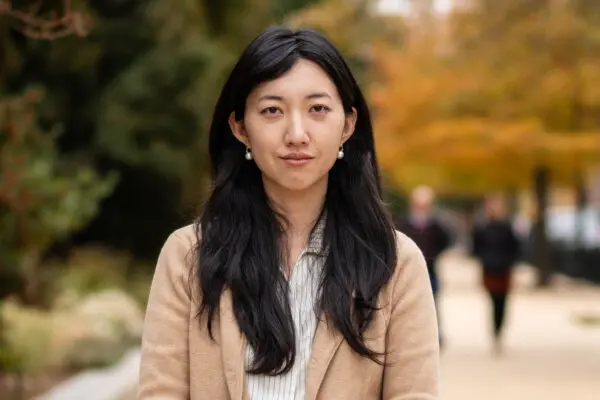
Grace Jin Drexel after testifying before the Congressional-Executive Commission on China (CECC) on Capitol Hill on Nov. 20, 2025. Madalina Kilroy/The Epoch Times
These independent churches connect civil society, model transparency, and use democratic means such as electing elders and rotating board members, she added.
“Christians in China do not oppose authorities, and the church has always sought to enrich Chinese society. They merely ask to be free from the control of the Chinese Communist Party, a self-identified atheist organization,” she said in her testimony.
Jin Drexel said the detained church leaders have been denied visitation, and her grandmother, who tried to bring Jin the medication prescribed for his severe Type 2 diabetes, was turned away. Another church elder who has a rare heart disease has been sent to the emergency room at least once since he was detained, and none have been given bail, she said.
The targeting of Zion Church has put the CCP’s hostility toward religion back in the spotlight.
Jin Drexel said her request for the U.S. government and the free world isn’t a specific one.
“Just stand with us, and to not forget us, and to show the world that faith is something that is intimate and is powerful and belongs to solely an individual, and that cannot be taken away and should not be persecuted,” she said.
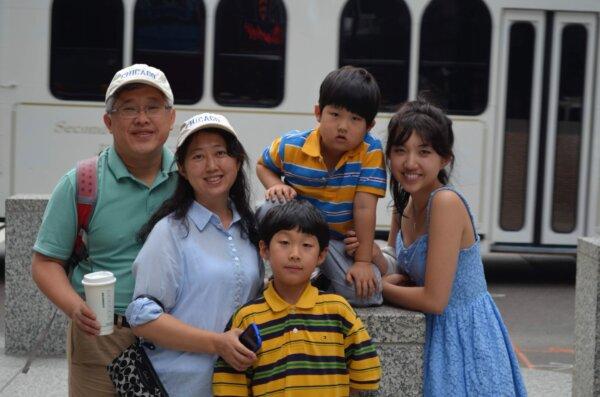
The Jin family. Courtesy of Grace Jin Drexel
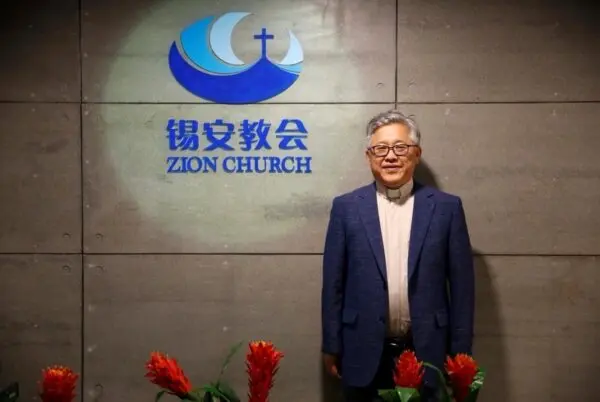
Pastor Ezra Jin, founder of the Zion Church in China. Courtesy of Grace Jin Drexel
Original News Source Link – Epoch Times
Running For Office? Conservative Campaign Consulting – Election Day Strategies!

